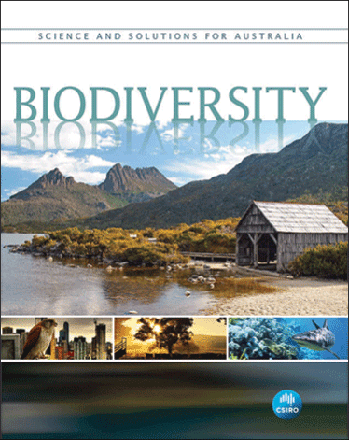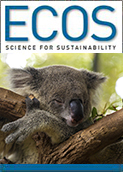
|
Published: 21 July 2014
Latest biodiversity information captured in new CSIRO book
Capturing the latest information on Australia’s biodiversity, a new book from CSIRO, Biodiversity: Science and Solutions for Australia, aims to provide business, government and the community with practical solutions to managing Australia’s globally unique natural assets.

|
|
Biodiversity: Science and Solutions for Australia was launched last week at Parliament House by Federal Environment Minister Greg Hunt. Credit: CSIRO
|
Whether it’s a precious cultural symbol, our life-support system, or a resource – biodiversity matters to all Australians. Yet, despite our sense of its importance as part of our national identity, in many parts of our country biodiversity is in trouble.
Federal Environment Minister Greg Hunt launched the book last week at Parliament House “This publication is an invaluable resource for anyone managing Australia’s ecosystems. The book provides an important bridge from our scientists to the wider Australian community,” said Minister Hunt.
At the launch, CSIRO’s Chief Executive Megan Clark said “CSIRO’s book draws together the latest science to identify practical solutions to the many challenges that face Australia’s unique biodiversity, which include habitat fragmentation, altered fire regimes, invasive species, harvesting of species, and species decline”
“The book draws on CSIRO’s 90 years of research into biodiversity, as well as insights from the broader community, including research organisations, industry, all levels of government and the wider community,” said Dr Clark.
Within the book’s 192 pages are scientific insights, including:
-
The ancient origins and unique features of Australia’s species, as well as the current status of our biodiversity on land and in rivers, lakes and the sea.
-
Tools for management and planning, including Australia’s protected area system.
-
Indigenous perspectives on biodiversity.
-
How Australia’s biodiversity interacts with agriculture, the resources sector, and cities.
The book is available for free as an eBook from the CSIRO website, and will be distributed to key decision makers around the country.



